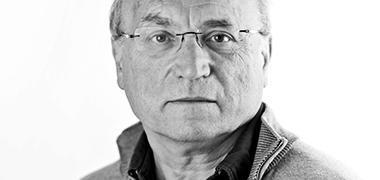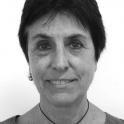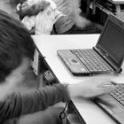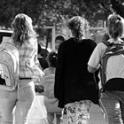We are celebrating the 10-year anniversary of Debats d’Educació by giving the educational community the opportunity to air its views

My name is Francesc Imbernon and I am Professor of Didactics and Educational Organization at the University of Barcelona. From 1996 to 1998, I was director of the University Teacher Training School at the University of Barcelona, where I have also been director of the Department of Didactics and Educational Organization. As a teacher with a degree and a PhD in Philosophy and Educational Sciences, I have always had an interest in educational theory and practice in various fields and at different levels. I work in initial and ongoing teacher training at all educational levels, from primary to higher education, the training of professionals from various sectors, and the training of trainers.
I have received several awards and I have published various books, in addition to chapters in jointly authored books. I am a member of several editorial boards and I have published articles in both national and international educational journals. I am director of the prestigious teacher training research group, FODIP, at the University of Barcelona, and director of the International Observatory of the teaching profession.
The three things I’ve learned
Teachers’ competencies must be improved if we wish to improve education
In response to all the changes of the 21st century, teachers need to develop new professional competencies, within the framework of pedagogical, scientific and cultural knowledge which has been reappraised, and of a new democratic approach to the education of society. In this way, they may transmit to the citizens of the future a set of values and behaviours that are democratic, egalitarian, respectful of cultural and social diversity, respectful of the environment, etc. The acquisition of these new competencies involves a new way of exercising their profession and of receiving training in today’s complex society; this complexity will increase as a result of the radical and rapid change in scientific, social and educational structures in the 21st century. In short, the 21st century requires very different teachers and very different training, because education and teaching are very different. There is a need to view things in another way, make efforts to change and begin to look at teaching in a new light.
Teachers must work in collaboration and overcome isolation
Education as an institution requires a climate of collaboration in which teachers are neither reticent (not questioning the actions of those who believe everything is fine) nor obstructive (refusing to change what they do not want to change); it also requires minimally stable organization in schools (respect, democratic leadership, participation of all staff, etc.) to support innovation, as well as the acceptance that there is contextualization and diversity among teachers, and that this leads to different ways of thinking and acting. All of this plays a part in achieving greater acceptance of changes and innovation in practices, and recognition that in order for collaboration to be effective, everyone involved has to accept diversity and tolerance. Recognition of individuality in collaboration is an expression of trust, empathy and connectivity. And it leads to people working better.
Supporting teachers in their classes is fundamental to the introduction of work into the classroom and reflection on this work
Most teachers receive little feedback about their performance in the classroom, and on occasions they express the need to know how they are going about their day-to-day work, so that they may learn from this. At present, individualism is excessively visible in schools, and teachers view their classroom as somewhere private, to which only people in a position of authority have access (the inspector to assess them, the researcher to obtain data), not as a place where knowledge can be generated that will help teachers learn themselves.
Observation, reflection on practice and the evaluation of teaching provide teachers with information for consideration and analysis, and pupils’ learning will benefit as a result. The observation of others enhances individual reflection on one’s own practice; above all, because teaching is still an isolated profession, which is normally conducted without other adults being present, and therefore teachers do not take advantage of the observations of others.















 The texts published on this website are, unless otherwise indicated, covered by the Creative Commons Spain Attribution 3.0 licence. You may copy, distribute, transmit and adapt the work, provided you attribute it (authorship, journal name, publisher) in the manner specified by the author(s) or licensor(s). The full text of the licence can be consulted here:
The texts published on this website are, unless otherwise indicated, covered by the Creative Commons Spain Attribution 3.0 licence. You may copy, distribute, transmit and adapt the work, provided you attribute it (authorship, journal name, publisher) in the manner specified by the author(s) or licensor(s). The full text of the licence can be consulted here: